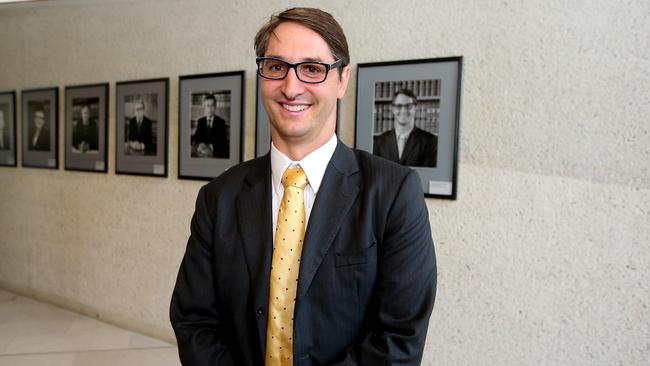Remaking our honours system

Spare a thought for James Edelman, the newest judge of the High Court of Australia. The other six justices have been appointed as Companion of the Order of Australia, the top tier in our honours system, awarded “for eminent achievement and merit of the highest degree in service to Australia or humanity at large”. No doubt Justice Edelman, appointed in 2017, will join their distinguished ranks before he is required to retire in 2044. It goes with the territory. Likewise for former prime ministers, although Paul Keating is the only national leader to have rejected the honour. Kevin Rudd knocked back an AC several times, believing awards should go to those who are devoted to serving their community but are rarely thanked. Mr Rudd eventually accepted an AC last year for what he saw as recognition of his post-politics work in promoting understanding of Asia’s peoples and cultures and world peace.
Announcement of the awards each Australia Day and Queen’s Birthday is often greeted with as much scorn as it is with ovation for high-profile recipients. That’s understandable, as one person’s prime-time soothsayer is another’s sozzled, sweary troll. Too often people are getting gongs for doing their jobs while being paid a fortune, important as many of these roles are to society. Some from the corporate elite, obsessed with procuring, at the very least, an Officer of the Order of Australia, are social climbing via philanthropic ranks and employing surrogates to prepare their applications for recognition that befits their ego. Mr Rudd was right. The system should be geared to honouring those who work without glory to help others and to improve the community. It’s time for system renovation because the built-in dynamics are producing a hierarchy antithetical to our values.
As Matthew Denholm reported on Monday, in the most recent Queen’s Birthday honours civil list only four of 53 recipients of an AC or AO gained their gong for service to the community rather than to a profession or area of work. Economist Nick Gruen has found the awards are weighted to those of high status rather than community champions. From 2013 to 2018, less than 30 per cent of all AC recipients had done community work, dropping to 10 per cent in 2019-20, excluding this month’s awards. Those volunteering for decades or going “above and beyond” in helping others tend to receive the lowly Medal of the Order of Australia. A few quiet achievers may receive the next honour one level up, the Member of the Order of Australia.
Awards are decided by the Council of the Order of Australia, chaired by former Northern Territory chief minister Shane Stone. It’s true anyone can nominate anyone or themselves, but the 19-member council should be assiduously apolitical and not narrowly cast. One way to get better recognition for grassroots heroes, argues Dr Gruen, is to have a citizen’s jury of 25 people, randomly chosen, to deliberate on the values they want to reward. The current condition for written references means indigenous people are less likely to be recognised. As well, there has been an almost doubling of awards, from 847 in 2000 to 1547 in this year. The proportion of nominations accepted has risen from 58 per cent in 2000 to 72 per cent this year. At these odds, little wonder medical, legal and military bodies seek to secure awards and upgrades for members.
At the very least, the Morrison government needs to implement a thorough review. The honours system should be more open, discerning and egalitarian. Even monarchists agree. Community and charitable work should be properly recognised, not relegated to the lower ranks of awards, and the criteria weighted away from banal careerism, regardless of the field. Former chief of the defence force and one-time council member Chris Barrie argues the system may be “preserving a hangover of the British imperial system”. It certainly looks that way, creating a new social pecking order. Governor-General David Hurley, who approves appointments, told Denholm the Order of Australia belongs to and represents all of us. Australians “must have confidence in it”, he said. “It must continue to evolve — as our society does — and reflect and recognise the best of Australia.” Right now, our national honours system is falling short of those lofty goals.

